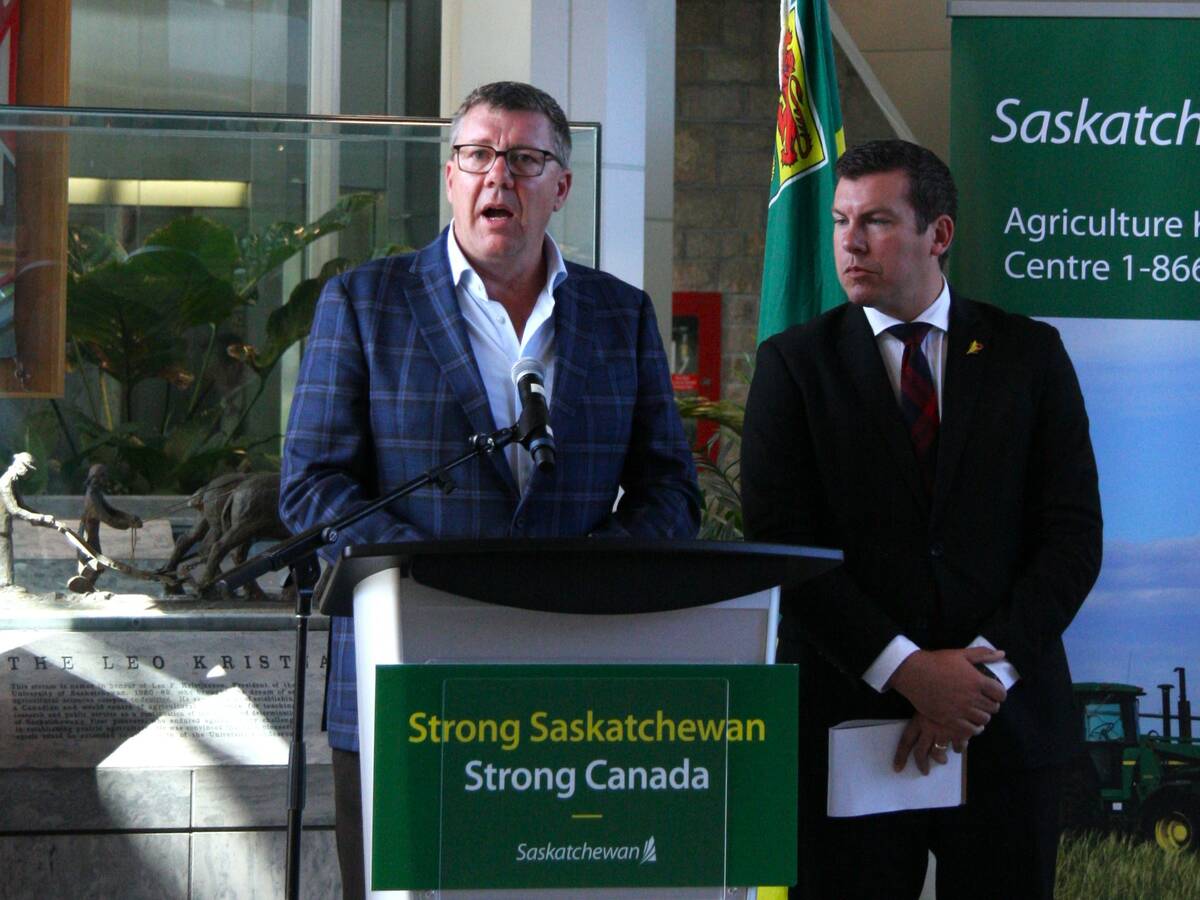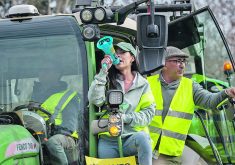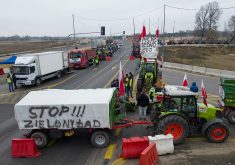The European Union’s agricultural policies concern global exporters who are expected to meet ever-stricter regulations
SASKATOON — Many agricultural components of the European Green Deal have yet to be implemented four years after the package of policy initiatives was introduced.
“Much of what the Farm-to-Fork program proposed has been delayed or is a work in progress,” independent Brussels-based consultant Macy Merriman said during a recent webinar hosted by Agri-Pulse.
Related stories:
- EU agriculture plan uneconomic, USDA model concludes
- Farmers make case for science-based policy
Read Also

Key actions identified to address canola tariffs
Federal and Saskatchewan governments discuss next steps with industry on Chinese tariffs
That includes the flagship Sustainable Food Systems Framework legislation that was the pet project of Frans Timmermans, former executive vice-president of the European Commission for the European Green Deal.
“This has totally disappeared from the commission’s work schedule,” he said.
Other initiatives are also floundering, including the Sustainable Use of Pesticides Regulation, said Merriman.
“The upcoming EU elections in June are going to determine the future of many of these issues.”
Right-wing parties have arisen in the EU and big farmer protests in key member states have been held in response to some of the Farm-to-Fork policies farmers said have caused economic hardship.
“The next European Parliament and Commission could look different and behave very differently than this one,” said Merriman.
Regardless of that, the EU’s existing crop protection regulations are reducing the reauthorization of existing active ingredients and even fewer new products are reaching the market.
When that happens, the EU’s maximum residue limits for rejected products effectively go to zero, which is creating headaches for exporters around the world who want to ship crops to the massive EU market.
Huang Thi Lien, chair of Vietnam’s Pepper and Spice Association, said the EU’s pesticide rules seem to be getting stricter by the day.
“And even worse, some EU buyers want the MRL even stricter than the level accepted by the EU in general,” she said during the Agri-Pulse webinar.
If the EU wants farmers around the world to cut back on pesticides, it should be prepared to financially support them, said Lien.
Lucy Namu, senior principal analytical chemist at the Kenya Plant Health Inspectorate Service, said missing or misaligned MRLs are becoming a big problem for minor crops in Africa.
Only a few chemicals are registered for Kenya’s specific pest and crop combinations, such as beans and peas that are exported to the EU.
“The lack of MRLs is really affecting the minor crops’ market access,” she said. “The EU is removing more and more pesticides without new tools coming into the market for farmers to use.”
Lloyd Day, deputy director general of the Inter-American Institute for Cooperation (IICA) on Agriculture, said the EU’s pesticides rules are affecting more than US$40 billion worth of trade with the Americas.
That is why dozens of western agriculture ministers sent a joint message to the EU via IICA in 2019 stating that the EU’s agriculture policies need to be based on science. That message was reiterated at numerous international meetings since then, including the recent COP28 meeting.
“They are not necessarily listening to us yet,” said Day. “But I think if they open the doors and look at what’s on the streets in a lot of the capitals of Europe this week and last week, they can see that they need to talk to their own farmers too.”
Day believes European farmers are the best allies for the promotion of science-based policies in the EU.
Merriman said EU growers are becoming increasingly upset about what is being “foisted upon them” by the European Green Deal.
“Many of them are saying yes to the transition, but not if it comes entirely off of our backs and out of our own pockets,” he said.


















